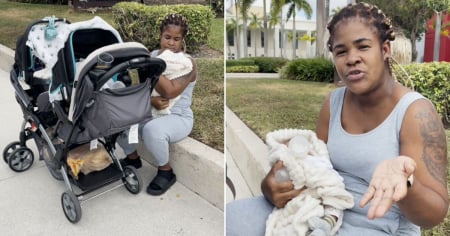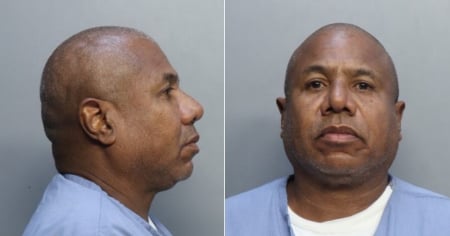A Cuban woman born in Granma who emigrated to the United States eight years ago has been living on the streets of Miami for two years, with little hope that her situation will improve.
María Isabel Fuentes is a seamstress and designs clothing. She moved from Texas to Miami and started her own business, which was doing well, but six months later the coronavirus pandemic hit, and she lost everything. Since then, she has been unable to recover.
"I received some government assistance, but it was minimal and not enough to reopen the business. I had to put everything in a storage unit, and I spent seven months sleeping there. That led to stress-related illnesses and chronic pain," he shared in a video posted on the TikTok account of user Leonel Allegues Miami.
"I gradually got worse until I found myself in the situation I’m in now," he added.
María Isabel Fuentes claims that she is alone, as she has no family and hardly any friends either.
He found a job driving for Uber, but he couldn't keep it because the medications he takes prevent him from driving. Additionally, he has several herniated discs that make any physical effort impossible for him.
Frequently Asked Questions about the Situation of Cuban Immigrants in Miami
Why has María Isabel Fuentes been living on the streets of Miami for two years?
María Isabel Fuentes lives on the streets of Miami because she lost her sewing business due to the pandemic. Despite receiving some assistance from the government, it was not enough to reopen her business. Additionally, her health has declined, preventing her from doing jobs that require physical effort.
What health issues are affecting María Isabel, and how do they impact her situation?
María Isabel suffers from chronic pain and several herniated discs that prevent her from engaging in physical activities. Additionally, her medication makes it unsafe for her to drive, which has hindered her ability to maintain a job as an Uber driver, exacerbating her vulnerable situation.
What kind of support has María Isabel Fuentes received since she started living on the streets?
María Isabel has received some assistance from the government, but it has been insufficient to improve her situation. She has no family or many friends who can support her, which further complicates her ability to get off the streets and rebuild her life.
Are there similarities between María Isabel's situation and that of other Cuban immigrants in Miami?
Yes, many Cuban immigrants in Miami face similar vulnerabilities due to a lack of support networks, documentation issues, and difficulties in finding stable employment. These challenges are common and reflect the obstacles they encounter upon arriving in the United States.
Filed under:






